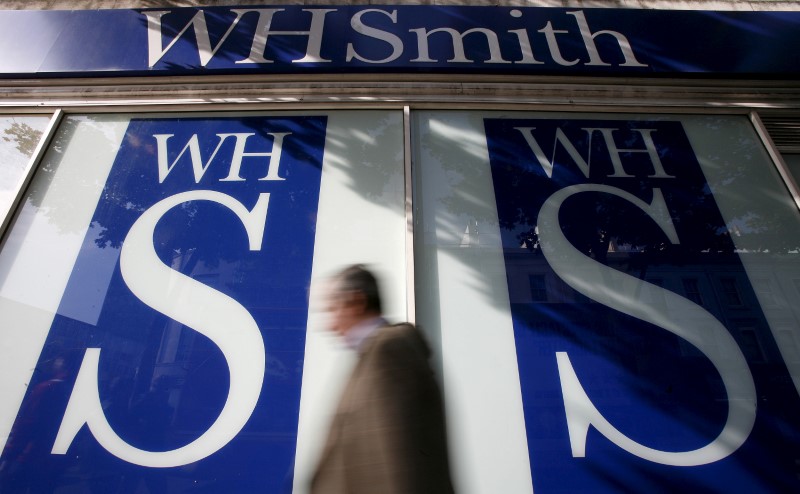Investing.com -- Shares of WH Smith (LON:SMWH) jumped on Wednesday after it reported a 7% increase in annual revenue, driven by a resurgence in travel demand.
At 4:40 am (0840 GMT), WH Smith was trading 12.3% higher at £1,377.7.
The company's Travel division reported a 10% increase in revenue. This segment has been the standout performer, with the UK market reported a 12% revenue boost during the peak trading period.
“We have ended the financial year in a strong position, delivering a performance in line with our expectations with good growth across our Travel businesses. Our UK division performed particularly well over the peak summer trading period,” said the Group CEO, Carl Cowling.
This is attributed to the implementation of new initiatives and an increase in passenger numbers.
Meanwhile, WH Smith’s North American and Rest of the World operations also reported strong performance, with revenue increases of 6% and 15%, respectively.
In contrast, the High Street segment faced challenges, recording a 4% decline in revenue. However, the adverse impact on this segment was offset by the Travel division's strong performance.
Additionally, WH Smith has announced a £50 million share buyback. The buyback initiative is supported by a recent £85 million capital return from the pension scheme buyout and the company’s low leverage ratio, anticipated to be around 1.1x post-transaction.
“We see potential for investor perception to improve on WH Smith due to a likely acceleration of US Travel sales growth and a sharp improvement in Travel gross margin in H2. We think it can return to a strong "long term travel growth with cash returns" equity story,” said analysts at RBC Capital Markets in a note.
The successful completion of the defined benefit pension scheme buyout has not only eliminated future cash contributions but also reinforced WH Smith’s financial stability.
“We remain attracted to its longer-term growth potential in captive Travel retail markets, and we believe that travel demand remains strong, and SMWH should be helped by its relatively low basket size in a tougher consumer environment,” RBC said.
